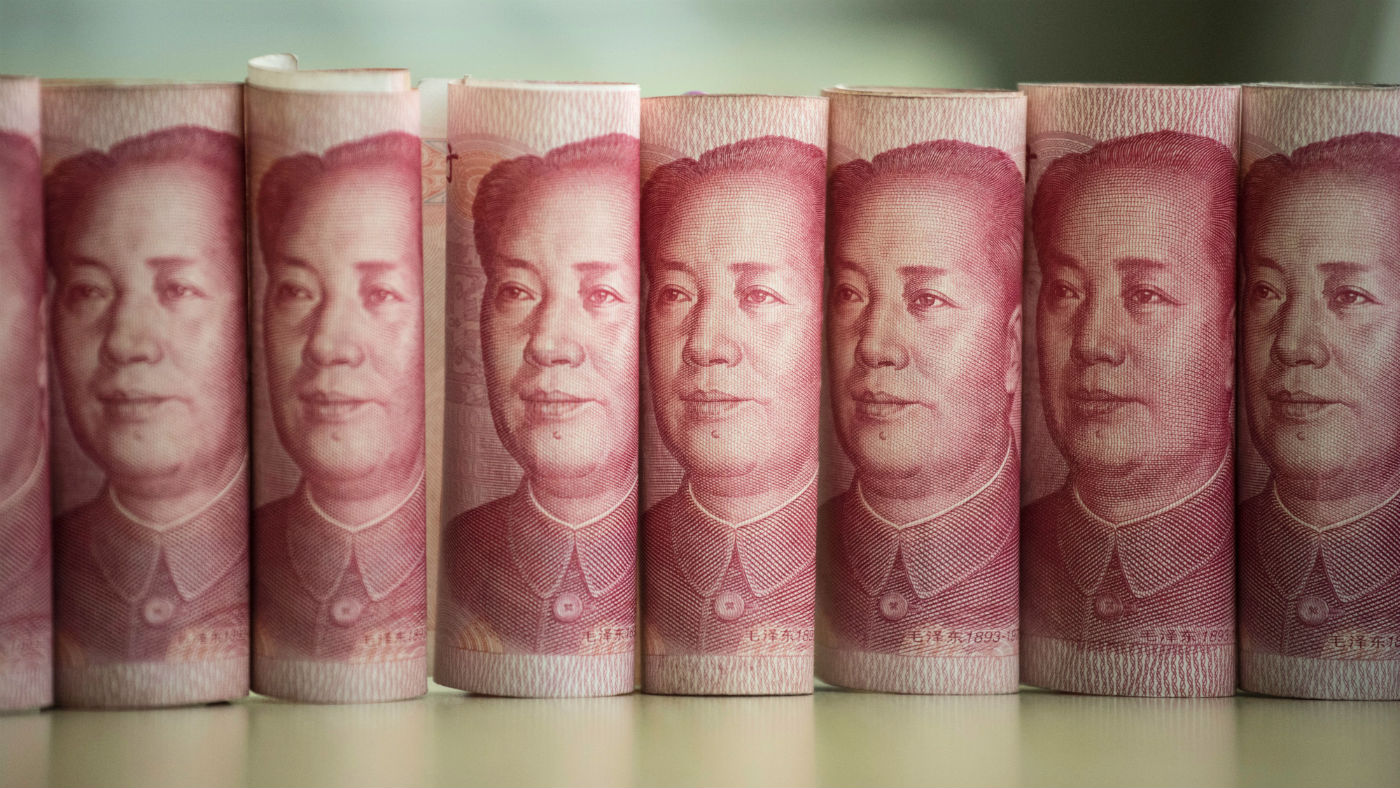China rules out currency devaluation to boost global trade
Chinese premier says Beijing will not actively weaken the yuan to encourage exports despite looming trade-war

A free daily email with the biggest news stories of the day – and the best features from TheWeek.com
You are now subscribed
Your newsletter sign-up was successful
China has categorically ruled out devaluing its currency in a bid to boost exports, despite the growing threat of an all-out trade war with the US.
Speaking to an audience of global executives and policymakers, Premier Li Keqiang said that Beijing would not weaken the yuan to boost trade with the rest of the world, while at the same time urging the World Economic Forum to defend the basic principles of “multilateralism and free trade”.
His comments appear to address claims that China is using its currency as a tool in the trade war with the US and come after the Trump administration announced it would impose new tariffs on $200bn worth of Chinese goods.
The Week
Escape your echo chamber. Get the facts behind the news, plus analysis from multiple perspectives.

Sign up for The Week's Free Newsletters
From our morning news briefing to a weekly Good News Newsletter, get the best of The Week delivered directly to your inbox.
From our morning news briefing to a weekly Good News Newsletter, get the best of The Week delivered directly to your inbox.
The yuan, also known as the renminbi, has dropped sharply against the dollar as the trade fight has ramped up, losing about 9% of its value since April.
This has led US President Donald Trump to repeat accusations first made on his campaign trail that China is manipulating its currency to combat US tariffs, “raising concerns that the currency market could become the next front in the economic battle between the two countries”, says the BBC.
This was strongly denied by Li. But with the trade war between China and the United States intensifying, “Beijing has just taken one potential weapon off the table”, reports CNN Money.
The news channel says China, which buys far less from the United States than the other way round, is starting to run low on American products to target, “raising speculation about what other measures it could take to hit back”.
A free daily email with the biggest news stories of the day – and the best features from TheWeek.com
-
 How the FCC’s ‘equal time’ rule works
How the FCC’s ‘equal time’ rule worksIn the Spotlight The law is at the heart of the Colbert-CBS conflict
-
 What is the endgame in the DHS shutdown?
What is the endgame in the DHS shutdown?Today’s Big Question Democrats want to rein in ICE’s immigration crackdown
-
 ‘Poor time management isn’t just an inconvenience’
‘Poor time management isn’t just an inconvenience’Instant Opinion Opinion, comment and editorials of the day
-
 Will increasing tensions with Iran boil over into war?
Will increasing tensions with Iran boil over into war?Today’s Big Question President Donald Trump has recently been threatening the country
-
 Corruption: The spy sheikh and the president
Corruption: The spy sheikh and the presidentFeature Trump is at the center of another scandal
-
 Rubio boosts Orbán ahead of Hungary election
Rubio boosts Orbán ahead of Hungary electionSpeed Read Far-right nationalist Prime Minister Viktor Orbán is facing a tough re-election fight after many years in power
-
 Greenland’s capital becomes ground zero for the country’s diplomatic straits
Greenland’s capital becomes ground zero for the country’s diplomatic straitsIN THE SPOTLIGHT A flurry of new consular activity in Nuuk shows how important Greenland has become to Europeans’ anxiety about American imperialism
-
 Epstein files topple law CEO, roil UK government
Epstein files topple law CEO, roil UK governmentSpeed Read Peter Mandelson, Britain’s former ambassador to the US, is caught up in the scandal
-
 Iran and US prepare to meet after skirmishes
Iran and US prepare to meet after skirmishesSpeed Read The incident comes amid heightened tensions in the Middle East
-
 Which way will Trump go on Iran?
Which way will Trump go on Iran?Today’s Big Question Diplomatic talks set to be held in Turkey on Friday, but failure to reach an agreement could have ‘terrible’ global ramifications
-
 EU and India clinch trade pact amid US tariff war
EU and India clinch trade pact amid US tariff warSpeed Read The agreement will slash tariffs on most goods over the next decade